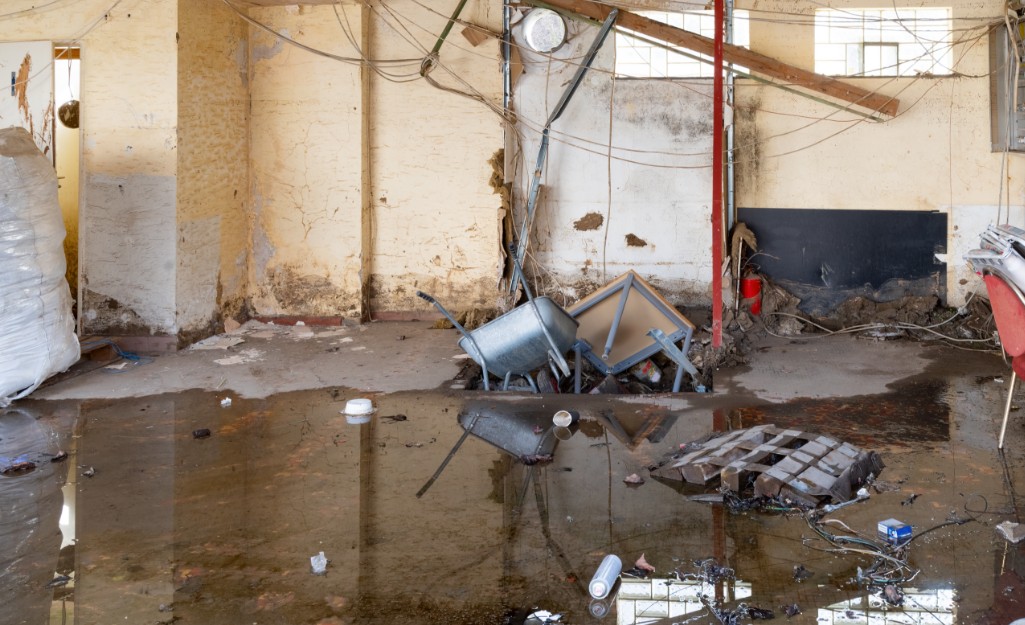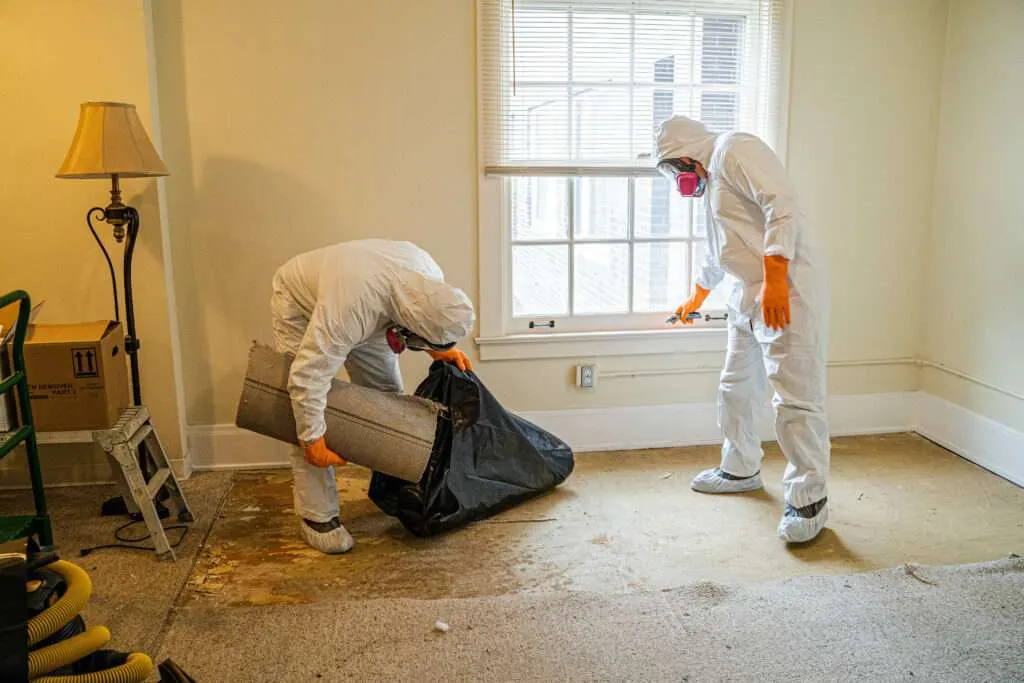Water Damage Restoration 101: Recognizing the Process and Expense
Water damage can strike unexpectedly, leaving homeowners in a state of complication. Understanding the restoration procedure is vital for effective recuperation. From examining the damage to picking the best company, each action impacts the total outcome and expense. Elements such as the sort of water damage and urgency likewise play a substantial function. What are the certain techniques utilized in restoration, and just how can one get ready for prospective expenses?
Sorts Of Water Damage
First Analysis and Examination

Water Extraction Strategies
Adhering to the first assessment, reliable water extraction methods are utilized to mitigate damage and avoid additional issues. These strategies include making use of specific equipment such as completely submersible pumps and industrial-grade vacuum cleaners - Mold Remediation After Water Damage. The choice of technique relies on the quantity of water existing and the sort of materials impacted. For standing water, submersible pumps are generally utilized for rapid removal, while vacuum cleaners are ideal for extracting water from carpetings and upholstery. Additionally, progressed methods like water removal floor coverings might be used for hard-to-reach locations - Flood Cleanup Services. The goal is to get rid of as much water as possible, minimizing the possibility for mold growth and structural damage. Prompt and reliable water extraction is important in the general water damage restoration process
Drying and Dehumidification Process
Once the water extraction is full, the drying out and dehumidification process ends up being essential to restoring the damaged location. This stage typically uses industrial-grade dehumidifiers and air moving companies to properly lower wetness degrees. The dehumidifiers reel in damp air, removing excess humidity, while air moving companies circulate air to increase dissipation. Monitoring equipment is frequently made use of to track humidity and temperature level levels, making sure ideal drying conditions. The duration of this process can vary relying on the level of the water damage and environmental factors. It is necessary to extensively completely dry all influenced materials, consisting of walls, flooring, and home furnishings, to avoid mold growth and architectural damage. Correct implementation of this step is crucial for an effective remediation outcome.
Cleaning Up and Sterilizing Affected Locations
When the drying out process is complete, a detailed initial analysis and assessment of affected areas is vital to recognize contamination degrees. Effective cleansing methods and proper products have to then be employed to eliminate debris and spots. Sanitization and disinfection methods are vital to guarantee that harmful pathogens are removed, bring back the area to a safe problem.
Initial Evaluation and Inspection
Prior to starting any kind of reconstruction efforts, a complete preliminary evaluation and assessment of the impacted areas are like it crucial for efficient cleaning and disinfecting. This process includes identifying the level of water damage, determining the source of the water intrusion, and assessing the products affected. Examiners normally search for indicators of mold and mildew development, architectural stability problems, and harmed personal belongings. The analysis additionally consists of examining moisture levels utilizing customized tools to ensure no covert water pockets continue to be, as these can cause further complications. Recording the searchings for is important for preparing the following action in the remediation procedure. An in-depth first assessment makes it possible for restoration experts to design a targeted technique for efficient cleaning and sanitizing, eventually decreasing damage and health and wellness dangers.
Cleansing Strategies and Products
Efficient cleansing and sterilizing of water-damaged locations require a range of products and strategies tailored to the specific products influenced. For permeable surfaces like drywall and carpets, extraction approaches are vital to remove excess moisture, adhered to by deep cleansing with specialized detergents. Non-porous products such as floor tile or metal can be cleaned utilizing commercial-grade cleaners that effectively eliminate impurities. Heavy steam cleansing is another effective strategy, especially for carpetings and upholstery, as it utilizes heats to remove germs and mold and mildew (Water Damage Restoration). Furthermore, eco-friendly items are progressively preferred for their safety and security and efficiency - Water Damage Restoration. Ultimately, selecting the appropriate cleaning techniques and items not only assures instant tidiness yet additionally help in stopping more damage and wellness dangers related to water invasion
Sanitization and Disinfection Techniques
When resolving water damage, appropriate sanitization and disinfection methods are important to assure the security and health of the afflicted setting. After first cleansing, surface areas should be treated with appropriate anti-bacterials to get rid of pathogens, mold, and bacteria that prosper in damp problems. Typical techniques include the use of EPA-approved chemical disinfectants, which can be applied through splashing or wiping methods. In addition, ultraviolet (UV) light systems can successfully disinfect areas by counteracting microbes without harsh chemicals. The option of technique often depends upon the kind of materials affected and the extent of contamination. Inevitably, detailed sanitization not just brings back a safe living room yet likewise aids prevent future health risks related to sticking around dampness and mold development.

Repair Services and Restoration Options
Reviewing the damage triggered by water direct exposure is crucial for establishing the appropriate fixings and reconstruction choices. Home owners might face numerous issues, consisting of damaged drywall, warped floor covering, and jeopardized architectural components. Depending on the extent of the damage, repairs might include changing areas of drywall, mounting brand-new floor covering, or enhancing structural light beams. In situations of serious damage, total substitute of afflicted materials may be necessary. Additionally, professional conservators often advise utilizing wetness meters to assess concealed wetness degrees prior to picking the very best program of action. It is very important to act immediately to protect against mold development and additional damage. Choosing the right options not only brings back the building yet also assures long-term safety and security and performance.
Factors Influencing Restoration Prices

The level of water damage straight influences the reconstruction costs house owners can anticipate to sustain. Aspects such as the resource of the water, the duration of direct exposure, and the affected products significantly influence rates. For instance, tidy water damage from a busted pipeline is generally less pricey to bring back contrasted to damage triggered by sewage. In addition, the level of contamination dictates the need for specialized cleaning and disposal solutions, even more boosting expenses. Geographical area also contributes, as local labor rates and accessibility of reconstruction solutions can vary. The urgency of the feedback impacts expenses; quicker interventions typically lead to lower total expenditures by preventing further damage. Comprehending these factors is important for homeowners when estimating remediation prices.
The 3 main types of water damage are categorized based on contamination degrees: tidy water, grey water, and black water. A comprehensive initial evaluation and examination are essential steps in the water damage restoration process. For standing water, submersible pumps are normally made use of for fast elimination, while vacuum cleaners are perfect for extracting water from rugs and furniture. The degree of water damage straight impacts the reconstruction costs home owners can anticipate to sustain. Tidy water damage from a busted pipe is typically less costly to bring back contrasted to damage created by sewer.